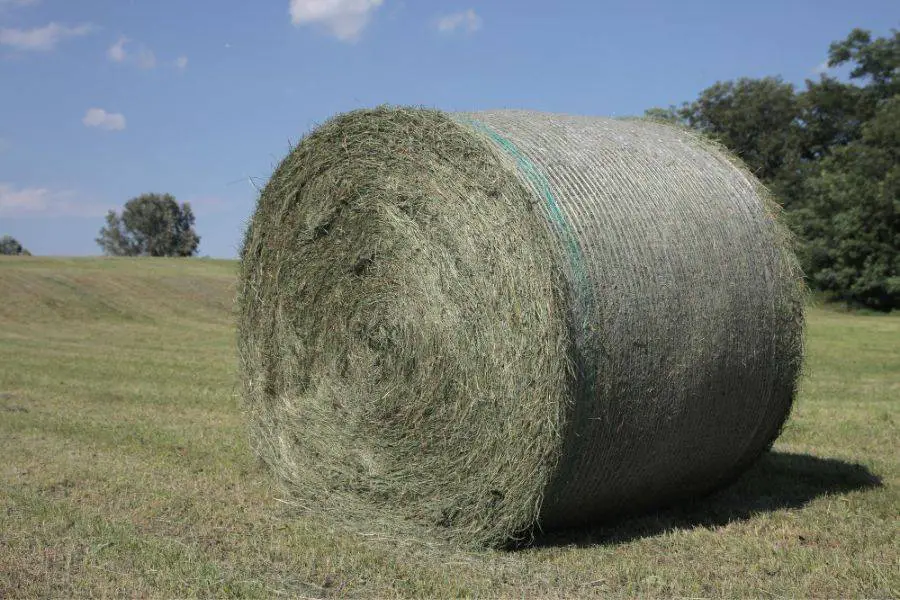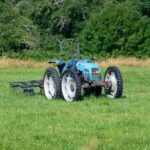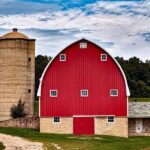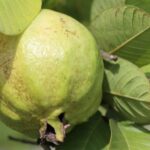Table of Contents
Alfalfa, a nutrient-rich legume, has long been a staple in the diet of dairy cows.
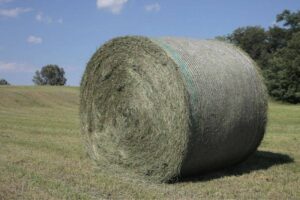
Its high protein content and digestibility make it an excellent choice for farmers looking to optimize their herd’s health and productivity.
However, like any feed, it’s essential to understand its nutritional profile, potential risks, and appropriate feeding amounts.
This article delves into the details of alfalfa as a feed for cows, addressing common questions and misconceptions.
Understanding Alfalfa
The Nutritional Profile of Alfalfa
Alfalfa is highly regarded for its rich nutritional profile. It’s packed with protein, fiber, vitamins, and minerals—components that are crucial to a cow’s health and productivity.
The high protein content promotes growth and milk production, while the fiber aids digestion.
Its vitamin and mineral content, including calcium and phosphorus, supports bone health and various metabolic functions.
Alfalfa Varieties and Their Differences
There are numerous varieties of alfalfa, each with slightly different characteristics. Some varieties have been bred for higher drought resistance, while others may have higher yield or nutritional content.
The choice of alfalfa variety can depend on factors like local climate conditions, soil type, and specific nutritional requirements of the cows.
Alfalfa as a Primary Feed for Cows
The Benefits of Alfalfa for Cows
Beyond its nutritional content, alfalfa offers several benefits when used as a primary feed for cows. Its palatability encourages intake, supporting optimal nutrition.
Additionally, its high digestibility allows cows to extract more nutrients per bite compared to other feeds.
The Risks Associated with Alfalfa for Cows
Despite its benefits, alfalfa isn’t without its risks. One of the main concerns associated with alfalfa is bloat, a condition caused by the rapid fermentation of alfalfa in the rumen.
It’s also high in calcium, which, while beneficial in many respects, can lead to an imbalance if not properly managed.
Feeding Alfalfa to Cows: How Much is Appropriate?
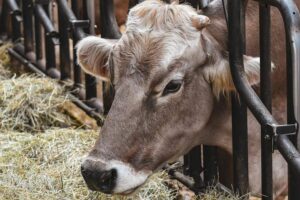
Determining the ideal quantity of alfalfa in a cow’s diet is dependent on various factors and requires careful consideration.
Alfalfa, with its rich protein content and nutritional profile, can be an excellent feed choice, but its consumption should be appropriately managed.
Factors Determining the Quantity of Alfalfa in a Cow’s Diet
The amount of alfalfa a cow should consume depends on several factors – its age, size, health status, and even its production stage.
For instance, a lactating cow has higher nutritional demands and may require a larger portion of alfalfa compared to a non-lactating one.
Similarly, younger or smaller cows may need less alfalfa than mature or larger ones.
Adjusting Alfalfa Intake According to Cow’s Age, Size, and Health
Adjusting the quantity of alfalfa based on these individual needs is essential. High-quality alfalfa can be fed to cows liberally without causing harm.
However, it’s worth noting that alfalfa provides a high level of nutrition, sometimes exceeding a cow’s requirements.
Therefore, each cow should be monitored for signs of over-nutrition, and adjustments should be made accordingly.
In practice, good quality alfalfa might be consumed at a rate of 2.5% dry matter of the cow’s body weight per day.
To put this into perspective, a cow weighing 1000 pounds could consume 25 pounds of alfalfa (dry matter basis) daily.
However, when alfalfa hay is used merely as a protein supplement for cows mainly consuming poor-quality grass hay or grazing corn stalks, the required alfalfa quantity drops significantly.
In such cases, only around 5-10 pounds of alfalfa hay per day might be necessary.
The amount of alfalfa supplementation also varies depending on the cow’s condition. For cows in good condition, around 7.92 pounds or 0.72% of body weight might suffice.
But for cows that need to gain weight, the alfalfa quantity could go up to approximately 10.56 pounds.
For dairy cows, a general guideline is to feed them between 2% and 3% of their body weight in alfalfa hay per day.
This amount can change depending on factors like milk production level, stage of lactation, and overall health status.
In conclusion, while alfalfa is an excellent feed option for cows, managing its intake based on individual cow needs is crucial.
Regular monitoring and adjustments can help ensure that each cow receives the right amount of nutrients for optimal health and productivity.
Can Cows Bloat on Alfalfa Hay?
Yes, cows can indeed bloat on alfalfa hay. Bloat in cows is a condition characterized by excessive gas accumulation in the rumen, often caused by the rapid fermentation of certain types of feed, including alfalfa.
However, the likelihood and severity of bloat can be influenced by a variety of factors such as the cow’s diet, the quality of the alfalfa, and the specific feeding practices employed.
Understanding Bloat and Its Causes
Bloat is a serious problem in livestock, especially cattle.
It usually occurs when cattle or other ruminants consume feeds that ferment rapidly in the rumen, leading to the production of excessive amounts of gas.
As this gas accumulates, it causes the animal’s abdomen to expand. In severe cases, bloat can be life-threatening.
Alfalfa, due to its high protein content and digestibility, can ferment quickly in the rumen, making it a common cause of bloat.
However, it’s important to note that not all alfalfa will cause bloat. For instance, dry alfalfa hay rarely causes bloat, and alfalfa that has been frosted and started to dry down has fewer tendencies to cause bloat.
Preventive Measures to Avoid Bloat from Alfalfa Hay
While alfalfa can cause bloat, there are several strategies for preventing this condition.
One approach is to gradually introduce alfalfa into the cow’s diet, allowing the rumen to adapt to the new feed.
Additionally, feeding a mix of alfalfa and grass hay can slow down the rate of fermentation in the rumen, reducing the risk of bloat.
Another preventive measure is to avoid feeding alfalfa that has been exposed to frost, as freezing ruptures plant cells and can increase bloat problems.
Lastly, anti-bloating medications or supplements can be provided as needed to further reduce the risk.
Can Alfalfa Be Bad for Cows?
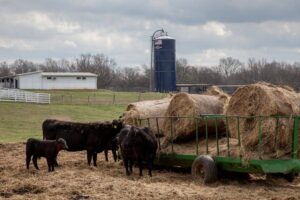
Potential Health Concerns Related to Alfalfa
While alfalfa is generally beneficial for cows, it can pose some health concerns if not properly managed. Overconsumption can lead to nutrient imbalances, particularly of calcium.
Additionally, if alfalfa is moldy or poorly stored, it can lead to mycotoxin ingestion, causing various health issues.
Addressing Common Misconceptions About Alfalfa and Cow’s Health
Despite these potential issues, alfalfa isn’t inherently bad for cows. Most health problems associated with alfalfa can be prevented with proper management and monitoring.
It’s important to dispel misconceptions and understand that alfalfa, like any feed, can be both beneficial and harmful depending on how it’s used.
Alternatives to Alfalfa in Cow’s Diet
Other Feeds to Consider
While alfalfa is a great feed option, it’s not the only one. Other feeds like grass hay, corn silage, or grain mixes can also provide necessary nutrients.
The choice of feed should depend on factors like availability, cost, and specific nutritional needs of the cows.
Balancing Alfalfa with Other Feeds in Cow’s Diet
A balanced diet is key to cow’s health and productivity. Incorporating a variety of feeds can help provide a wide range of nutrients and prevent overreliance on a single feed source.
Balancing alfalfa with other feeds can also help mitigate some of the risks associated with alfalfa, like bloat and nutrient imbalances.
Conclusion
In summary, alfalfa is a highly nutritious feed option for cows that can support their health and productivity when used correctly.
Understanding the benefits, potential risks, and appropriate feeding amounts can help farmers make the most of this valuable resource.
While alfalfa can be a primary feed for cows, it’s crucial to balance it with other feeds to ensure a well-rounded diet.
With careful management and consideration of individual cow needs, alfalfa can be a valuable addition to a cow’s diet.

